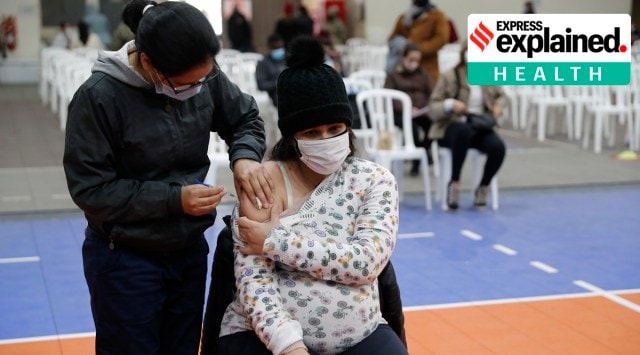Kaunain Sheriff M is an award-winning investigative journalist and the National Health Editor at The Indian Express. He is the author of Johnson & Johnson Files: The Indian Secrets of a Global Giant, an investigation into one of the world’s most powerful pharmaceutical companies. With over a decade of experience, Kaunain brings deep expertise in three areas of investigative journalism: law, health, and data. He currently leads The Indian Express newsroom’s in-depth coverage of health. His work has earned some of the most prestigious honours in journalism, including the Ramnath Goenka Award for Excellence in Journalism, the Society of Publishers in Asia (SOPA) Award, and the Mumbai Press Club’s Red Ink Award. Kaunain has also collaborated on major global investigations. He was part of the Implant Files project with the International Consortium of Investigative Journalists (ICIJ), which exposed malpractices in the medical device industry across the world. He also contributed to an international investigation that uncovered how a Chinese big-data firm was monitoring thousands of prominent Indian individuals and institutions in real time. Over the years, he has reported on several high-profile criminal trials, including the Hashimpura massacre, the 2G spectrum scam, and the coal block allocation case. Within The Indian Express, he has been honoured three times with the Indian Express Excellence Award for his investigations—on the anti-Sikh riots, the Vyapam exam scam, and the abuse of the National Security Act in Uttar Pradesh. ... Read More
Pregnant women and Covid-19 vaccines: Here are the Health Ministry guidelines
Pregnant women in India are now eligible for vaccination against Covid-19. Can there be side effects? Are certain pregnant women to be excluded? A look at the Health Ministry guidelines.
 At a vaccination campaign in Asuncion, Paraguay. Some countries are already administering Covid-19 vaccines to pregnant women. (AP Photo/Jorge Saenz)
At a vaccination campaign in Asuncion, Paraguay. Some countries are already administering Covid-19 vaccines to pregnant women. (AP Photo/Jorge Saenz)The Health Ministry has announced that pregnant women are now eligible for Covid-19 vaccination, at any time of the pregnancy. To help pregnant women make an informed decision, the Ministry has released guidelines detailing the risks from Covid-19 infection in pregnancy, the benefits of vaccination, and the likely side effects of vaccination.
What led to the recommendation?
The Ministry has said experts are of the view that the benefits of vaccination for pregnant women outweigh the potential risks. It has cited four reasons for the move:
- Current evidence indicates that pregnant women are at an increased risk of severe illness from Covid-19 compared to non-pregnant women in case they get infected.
- Pregnant women with Covid-19 are at higher risk for preterm birth and may have a higher risk of other adverse pregnancy outcomes, including neonatal morbidity.
- While most pregnant women will be asymptomatic or have mild disease, their health “may deteriorate rapidly and that might affect the foetal outcome”.
- The Ministry also cites the World Health Organization recommendation for vaccination in pregnant women when the benefits outweigh the potential risks for groups “… such as pregnant women at high risk of exposure to Covid-19 and pregnant women with co-morbidities that place them in a high-risk group for severe Covid-19 disease”.
What can be the vaccination side effects?
The Ministry has underlined that Covid-19 vaccines available are safe and protect pregnant women like other individuals. “Based on current knowledge, experts believe that Covid-19 vaccines are unlikely to pose a risk to the pregnant person or foetus,” the operational guidelines state.
However, they add, long-term adverse effects and safety of the vaccines for foetus and child are not established yet. Like any medicine, a vaccine may have side effects that are normally mild: mild fever, pain at injection site, or feeling unwell for 1-3 days, the guidelines say. They flag the possibility of a rare adverse reaction (one in 1-5 lakh) within 20 days after vaccination, which may need urgent attention.
What are these rare symptoms?
The Ministry lists a number of symptoms that require immediate medical attention:
- Shortness of breath
- Chest pain
- Pain on pressing the limbs or swelling in the limbs
- Small pinpoint haemorrhages or bruising of the skin beyond the vaccination site
- Persistent abdominal pain with or without vomiting
- Seizures in the absence of previous history of seizures, with or without vomiting
- Weakness/paralysis of limbs or any particular side of the body
- Persistent vomiting
- Blurred vision or pain in eyes.
Among pregnant women, is there a category for whom the vaccine is not recommended?
The contraindications for pregnant women are similar to those for the general population:
- Allergic reaction to a previous dose
- Allergic reaction to vaccines or injectable therapies, pharmaceutical products, food items.
What if woman has already had Covid?
The Ministry recommends that such women defer vaccination for 12 weeks from infection or 4 to 8 weeks from recovery.
Those who were treated with monoclonal antibodies or convalescent plasma, or have active Covid-19 infection, should also temporarily avoid vaccination.
If a woman gets Covid-19 infection during pregnancy, she should be vaccinated soon after the delivery.
How will side effects be kept track of?
The guidelines state that the pregnancy status of women should be recorded into the adverse events following immunization (AEFI) notification form while reporting AEFI cases. All adverse events should be reported immediately to CoWIN, and all serious and severe SEFIs to the concerned Medical Officer.
 How does Covid-19 affect a pregnant woman and her baby?
How does Covid-19 affect a pregnant woman and her baby?
The Ministry has said that although most infected pregnant women (>90%) recover without the need for hospitalisation, “rapid deterioration in health may occur in a few”. “Compared with pregnant women without Covid-19, those with symptomatic Covid-19 are at increased risk of adverse pregnancy outcomes, including admission to the ICU, iatrogenic preterm birth, pre-eclampsia-like symptoms, Caesarean section and death,” it has stated.
It adds that most newborns (95%) of Covid-positive mothers have been in good condition at birth. “However, Covid-19 in pregnancy increases the chances of preterm birth, increasing the possibility of hospitalisation for the neonate and in some cases even death,” it has said.
Are some pregnant women at higher risk than others?
The guidelines list the risk factors for developing complications after Covid-19 infection during pregnancy as: pre-existing co-morbidities, advanced maternal age, and high body mass index.
Certain categories and conditions such as diabetes, organ transplant recipients, chronic respiratory conditions, those receiving immunosuppression therapies, dialysis and congenital or acquired heart disease, too, put pregnant women at a greater risk of severe illness from Covid-19.



- 01
- 02
- 03
- 04
- 05




































